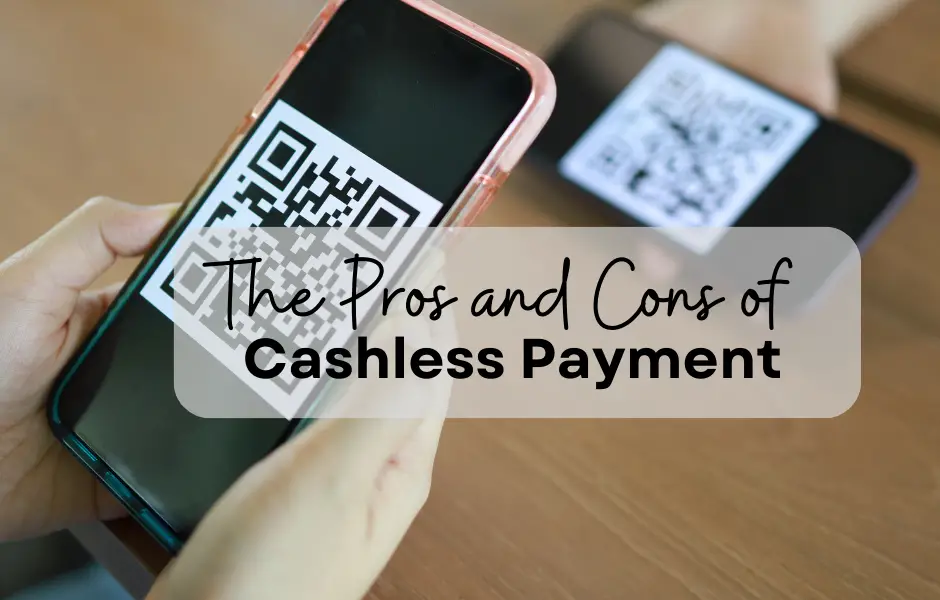Is the age of cash and cards winding down? How mobile payments are ushering in a cashless society in 2024.
The old leather wallet filled with cash and cards is beginning to look more like a relic with each passing year. This year is shaping up to be a pivotal time in the transition to a completely cashless, cardless society. Mobile payments, cryptocurrencies, wearable tech and more are transforming both in-person and online transactions.

Convenience
For consumers, going cardless is mostly about convenience. Forms of payment like Apple Pay, Samsung Pay, and QR code payments through apps like GCash allow instant, seamless point-of-sale purchases from your smartphone. E-wallets like PayMaya also enable online shopping without whipping out your credit card.
The benefits of these digital payments extend beyond speed. They also offer stronger security features like biometrics and encryption to reduce fraud. Going cashless improves budgeting and financial planning too, with digital receipts and spending trackers.
Not Smooth Sailing
But the cardless transition hasn’t been all smooth sailing. Many small businesses still rely heavily on cash and cards. And some consumer demographics like the elderly and underbanked still prefer cash transactions. There are also privacy and tech access concerns surrounding mobile and digital payments.
As we move firmly into 2024’s increasingly cash-free economy, the key will be financial flexibility. Let us welcome innovative payment tech while keeping backup options like prepaid debit cards and cash on hand. With smart navigation, consumers have an exciting array of instant, secure payment methods at their fingertips.
Cashless Future
This year we will see the inexorable shift towards a cashless future driven by mobile and digital payment technology. While it is welcomed by many for conveniences, this transition remains a work in progress needing thoughtful implementation. Achieving financial inclusion for unbanked groups, supporting small businesses, and maintaining privacy will be ongoing priorities.
By blending new innovations with inclusive backup systems, society can fully realize the positives of paperless, cardless, and even cashless transactions. If approached with care and vision, this payment revolution can empower consumers in exciting new ways beyond just sheer speed and efficiency.




I have been using Apple pay more often lately. It is interesting how payments have evolved. It seems so recent to be using a card and having to sign on a receipt!
Yes. These innovations have certainly made life a bit easier, although there are still personal data security concerns.
The convenience and security features offered by options like Apple Pay and PayMaya make life so much easier for busy moms like me.
I think it would be convenient, for sure. But I’m still doing the old school ways – using cash and cards. I may have to change those ways eventually.
Great breakdown of cashless payment pros and cons, helps in making informed financial decisions. Informative post, thank you for shedding light on this topic.
Un ornately I don’t use cash apps or even apple pay. Mainly because of the data breach’s even the data security as well.
Thank you for sharing this informative info on cashless payless. I still do it the old fashion way by using cash more instead of using cards.
I for one still use credit cards for many transactions while many others are online.. but 👍🏻 this is certainly the way of the future so need to ensure we keep security and privacy aspects in mind.. thanks for sharing your tips and pointers.
I much prefer the cashless system due to the security and convenience. It’s seldom I have cash on me (except a few quarters in my car for outdated parking meters!). I do still use credit cards for big ticket purchases as the reward points and cash back are better (hopefully cardless will catch up).
I always say that there’s a place for cash, cards, and cardless. Not all places accept all payment methods.
Your insights on navigating the payment revolution in 2024 are spot on! It’s fascinating to see how cashless and cardless transactions are becoming increasingly prevalent in our daily lives. Your article provides valuable information and tips for adapting to these changes seamlessly. The breakdown of different payment methods and their benefits is really helpful for readers. Keep up the great work!
I never carry cash on me anyways so this really would not be a big change for me. It is so much easier to be able to scan my phone in and not have to worry about if I have the exact change.
I personally prefer to do cashless payments across the board. I don’t carry cash on me anymore, unless I’m travelling abroad.
Ramil, loving your take on the cashless trend! Mobile payments are making life easier, right? But hey, let’s not forget about those small businesses and folks who still prefer the good ol’ cash. It’s all about finding that balance between convenience and inclusivity. Keep rocking those insights!
Thank you, Kat.
I’m all for going cashless. I think it’s one of the most feasible ways of “banking the unbanked.” However, there should be ample infrastructure support so that it’s reliable at all times.
The shift towards cashless and paperless transactions has already begun and it’s important that we embrace it with care and caution. With the right backup systems in place, this payment revolution can bring numerous benefits, such as increased convenience, greater efficiency, and enhanced security. It’s exciting to think about the various ways in which cashless transactions can empower consumers, and I believe we should all be open to exploring this new frontier.
[…] a new credit card approval and hard inquiry causes a small, short-term credit score drop initially. However not activating that new card has no additional impact on your score in the […]